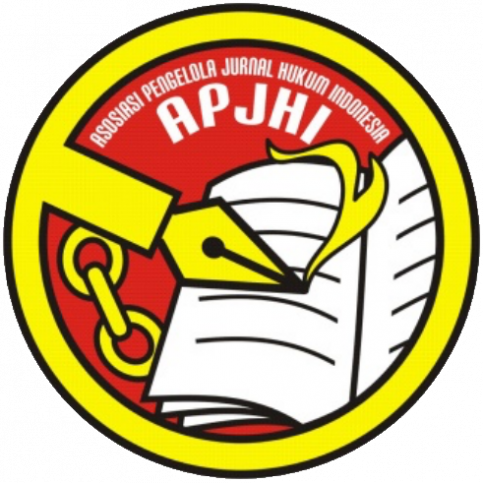PUBLIC SERVICES IN HUMAN RIGHTS PERSPECTIVE
Abstract
Public services can be provided by the government or by the private sector in the form of goods, services, and public administration that can be used to meet the needs and interests of the community. The implementation of available services by administrators does not rule out human rights violations. One of the characteristics of the rule of law is respect for human rights. The most basic human rights given by the Powerful are obliged to be recognized, respected by everyone. However, the reality is that in the implementation of public services, there is a possibility that actions that violate human rights may occur. Formulation of how public servants from the perspective of human rights and efforts to prevent violations of human rights in available services. The purpose of writing is to find out public services from a human rights perspective. The method used in this research is literature research using secondary data in the form of primary legal materials, secondary standard materials, and traditional tertiary materials. The analysis is normatively supported by empirical research and qualitative research types. In conclusion, public services must heed human rights. To prevent human rights violations in available services, organizers must act based on statutory regulations, discretion, and general principles of good government (Good Governance).
Keywords: public service, human rights
Full Text:
PDFReferences
Anggito, A., & Setiawan, J. (2018). Metodologi penelitian kualitatif. CV Jejak (Jejak Publisher).
Anggraeni, T. D. (2014). Menciptakan sistem pelayanan publik yang baik: Strategi reformasi birokrasi dalam pemberantasan korupsi. Jurnal Rechts Vinding: Media Pembinaan Hukum Nasional, 3(3), 417–433.
Anggriani, J. (2012). Hukum Administrasi Negara. Graha Ilmu.
Atmosudirjo, S. P. (1994). Hukum Administrasi Negara, Cet. Kesepuluh, Ghalia Indonesia, Jakarta.
Bovaird, T. (2007). Beyond engagement and participation: User and community coproduction of public services. Public Administration Review, 67(5), 846–860.
Brown, K., & Osborne, S. P. (2012). Managing change and innovation in public service organizations. Routledge.
Cahyadi, R. (2016). Inovasi kualitas pelayanan publik pemerintah daerah. Fiat Justicia Jurnal Ilmu Hukum Fakultas Hukum Universitas Lampung, 10(3), 569–586.
Gumilang, G. S. (2016). Metode penelitian kualitatif dalam bidang bimbingan dan konseling. Jurnal Fokus Konseling, 2(2).
Lockwood, M. (2010). Good governance for terrestrial protected areas: A framework, principles and performance outcomes. Journal of Environmental Management, 91(3), 754–766.
Nasution, A. B. (1997). Instrumen Internasional Pokok Hak Asasi Manusia. Yayasan Obor Indonesia.
Rhodes, R. A., & Wanna, J. (2007). The limits to public value, or rescuing responsible government from the platonic guardians. Australian Journal of Public Administration, 66(4), 406–421.
Setiadi, W. (2012). Pembangunan Hukum dalam Rangka Peningkatan Supremasi Hukum. Jurnal Rechts Vinding: Media Pembinaan Hukum Nasional, 1(1), 1–15.
Siti Maryam, N. (2017). Mewujudkan good governance melalui pelayanan publik. JIPSI-Jurnal Ilmu Politik Dan Komunikasi UNIKOM, 6.
Suandi, S. (2019). Analisis Kepuasan Masyarakat terhadap Pelayanan Publik Berdasarkan Indeks Kepuasan Masyarakat di Kantor Kecamatan Belitang Kabupaten OKU Timur. Journal PPS UNISTI, 1(2), 13–22.
Triwulan, T. (2016). Hukum Tata Usaha Negara dan Hukum Acara Peradilan Tata Usaha Negara Indonesia. Prenada Media.
DOI: http://dx.doi.org/10.31000/jhr.v8i1.3017
Article Metrics
Abstract - 1416 PDF - 1030Refbacks
- There are currently no refbacks.

This work is licensed under a Creative Commons Attribution-ShareAlike 4.0 International License.

